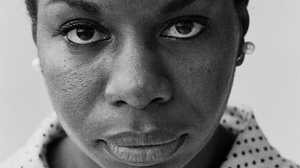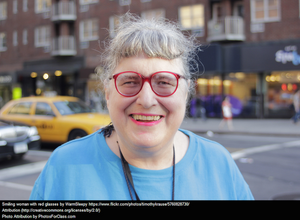In this final article based on the joint Beyond Betrayal/JHJ Body Image Survey for wives of sex addicts, Donna Meredith-Dixon (of A Door of Hope) will answer one final question on “obsessing” over his issues. I will end the post by reviewing some of what we learned from the replies received.
I know I can't compete with someone who could be my grandchild and shouldn't try, but something keeps telling me this was all my fault. How do I stop thinking and obsessing over this?
Donna: Boy can I relate to your pain. I’ve asked myself that same question. Moving through the pain to discovering our way out of it is a process. It will look somewhat different for each of us based on our personalities, histories, and the type of support we receive along the way.
Mine included practicing self-talk… using phrases and concepts that I receive as God-breathed to help me move continually toward being emotionally and spiritually healthy. An example then of how some of my internal dialogues were running:
Donna (to self): “I shouldn’t try to compete with younger women.”
Donna (back at self) “Don’t should all over yourself…or others. Of course you feel like you need to compete. You feel that if you were prettier, thinner, younger, had blonde hair or …. or …. He wouldn’t have… That’s natural, and shaming yourself isn’t going help. Stop now and listen to what you’re thinking of feeling.”
Then I begin speaking words of truth. I counter every lie with truth.
The Truth
What is the truth about our relationship with someone who betrayed us with their sexual behaviors? The truth is we didn’t cause his struggle and we can’t control what he thinks, feels, chooses, or does.
The truth is also that we can stop the negative self-talk (I wasn’t enough, etc., if I had only...) by acknowledging the falsehood, and then each time we start to go down that dead-end street, remind ourselves of the truth. That’s hard work. But instead of telling myself I can’t do it… it’s too hard… I pray, “Lord, I don’t know how to do this, but You do… so teach me.” Doing that type of hard work enriches all our relationships, not just with our spouse/partner.
Finally, I remind myself that I expect my husband to do the same – stop the negative self-talk, take time to assess what’s going on in his emotions, share them with safe people, and me! And step out of the destructive patterns that led to the brokenness in our lives.
There’s hope, authentic hope, that we can stop obsessing, learn how to change our thought patterns, which brings soothing to our emotions. Having safe places like Dawn and the JHJ community to bring our struggles, and ask for prayer and wisdom, insight and understanding from the sisterhood is a gift.
Body Image Trends
Lisa: Many, many thanks Donna — and to you lovely women who gave the gift of your time by filling out the Body Image survey. As you may recall, the final question asked you to rate your level of pain on this issue out of 100 (thank you Marsha for that brilliant addition). Looking for trends, I noticed:
Higher Pain Levels
- The husband was not engaged in recovery
- The husband was not actively engaged in rebuilding his wife (through loving affirmation) and was possibly doing the opposite
- Discovery was fairly recent
- Body image had been an issue even prior to discovery
Lower Pain Levels
- The respondent was no longer with the addict/husband
- The respondent was a younger woman
- The respondent had come to a place of spiritual and emotional growth by pursuing healing
Statistics, of course, don’t give us answers… but they can give us a starting point as we think things through.
Next week I'll be talking about other statistics: the results of my Prevalence of Domestic Violence in the Lives of PSAs study. In the meantime you can see me begining to discuss my findings at Fight for Love Ministries.
Later this month I'll be speaking again on DV, partners of sex addicts, and why porn has got to become a topic the church is addressing at the PWord Conference.


